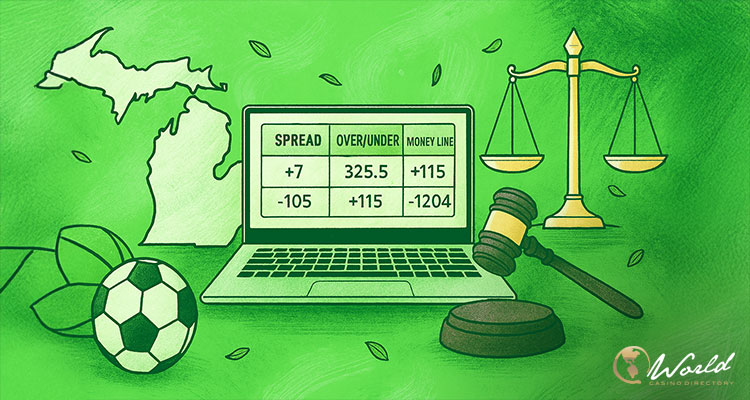Michigan has become the latest state to caution sportsbook operators about entering the growing but controversial world of prediction markets. The Michigan Gaming Control Board (MGCB) issued a memo last week warning licensed gaming operators that their state licenses could be in jeopardy if they participate in offering sports event contracts.
The memo (pdf), published by The Closing Line, underscored Michigan’s firm stance on maintaining compliance within its regulated gambling industry. The MGCB joins other states — including Ohio and Arizona — in alerting licensed sportsbooks that any move toward prediction market offerings could violate state gaming laws.
In the memo, MGCB Executive Director Henry Williams emphasized that “any involvement in the offering of sporting event contracts, directly or via an affiliate, key person, related business entity, or other association, will have implications relative to your licensure in Michigan.”
State Regulators Intensify Oversight Despite Federal Involvement
The MGCB’s notice arrives amid heightened tension between federal and state regulatory authorities regarding prediction markets. Although these markets are regulated at the federal level by the U.S. Commodity Futures Trading Commission (CFTC), many states have questioned whether sports event contracts offered by such platforms effectively amount to unlicensed sports betting.
In April, Michigan regulators began a formal investigation into sports prediction markets. That scrutiny reflects growing concern among state-level gaming boards about whether prediction markets violate their gaming laws, particularly as major event trading platforms continue to expand their reach.
Other states are pursuing similar measures. The Ohio Casino Control Commission and Arizona Department of Gaming both recently issued warnings to licensed operators, cautioning them against collaborating with entities offering sports event contracts. Massachusetts, meanwhile, has gone a step further — Attorney General Andrea Campbell filed a lawsuit against Kalshi, a major event trading platform, arguing that its activities constitute unlicensed sports wagering.
“Sports wagering comes with significant risk of addiction and financial loss and must be strictly regulated to mitigate public health consequences,” Campbell said in a statement. “This lawsuit will ensure that if Kalshi wants to be in the sports gaming business in Massachusetts, they must obtain a licence and follow our laws.”
Her office’s action follows similar lawsuits filed by regulators in California, Maryland, Nevada, and New Jersey, reflecting a national push to define the boundaries between legitimate prediction markets and illegal sports betting.
Sportsbooks Exploring New Avenues Face Regulatory Uncertainty
The MGCB’s latest warning comes as several prominent sportsbook operators consider entering the prediction market space. FanDuel, for example, partnered with CME Group to explore a new events-based market product. Similarly, Underdog has announced plans to collaborate with Crypto.com on a range of predictive offerings.
Meanwhile, DraftKings CEO Jason Robins has publicly discussed the potential of prediction markets, signaling his company’s interest in the emerging sector. The enthusiasm from these major operators highlights how prediction markets are viewed as a potential new revenue channel — albeit one fraught with regulatory uncertainty.
The MGCB reiterated that its role involves “developing licensing qualifications, standards and procedures and evaluating a person’s suitability for licensure both when an application is made and on a continuing basis.” Operators, it added, are obligated to inform the agency if they intend to offer sports event contracts, ensuring continued transparency in a rapidly evolving space.
Expanding Prediction Market Activity Spurs More Legal Challenges
The debate over prediction markets has only intensified as platforms expand their product offerings. Event trading exchange Kalshi, which began offering sports event contracts in January, has already added parlay-style betting products to its portfolio. Meanwhile, Robinhood integrated Kalshi’s football markets at the start of the season, broadening the visibility of these products among retail investors.
Despite growing adoption, prediction markets received little attention at a recent joint roundtable held by the CFTC and the U.S. Securities and Exchange Commission, even as an outgoing CFTC commissioner issued a public warning about the segment’s weak oversight.
With multiple state and federal lawsuits pending, prediction markets remain under close watch by regulators who are increasingly concerned about their intersection with gambling laws. Michigan’s decisive stance suggests that state-level regulators are determined to maintain authority over all forms of betting within their jurisdictions — even those framed as financial instruments.


